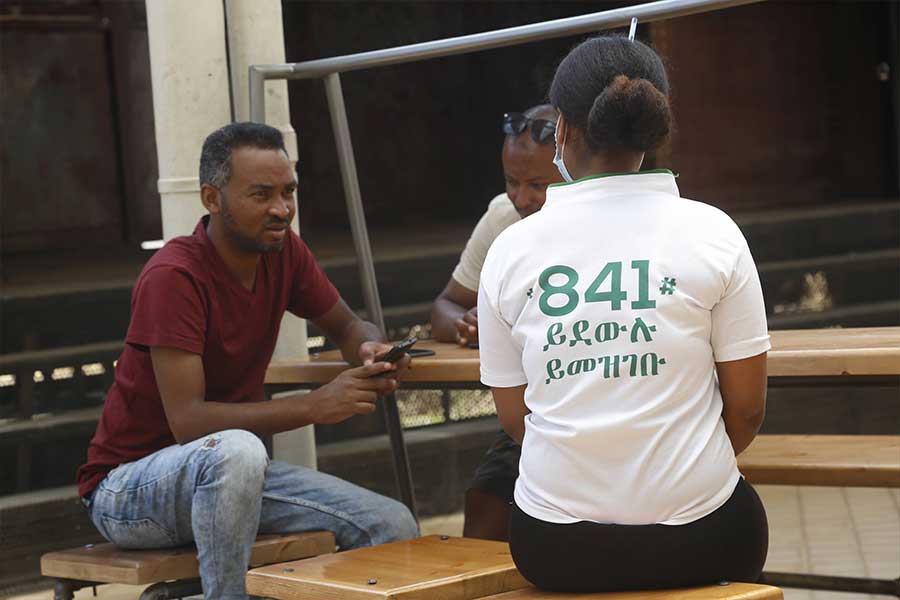
Radar | Sep 04,2021
May 25 , 2024
By Kidist Yidnekachew
A recent fundraising effort at work for a colleague facing financial hardship exposed a troubling side of our society: entitlement. While most employees contributed, some, including a close friend, could not due to their own financial struggles. This lack of understanding from some colleagues led to strained relationships.
My friend noticed a shift in one colleague's behaviour. They became distant, only interacting superficially and avoiding deeper communication. It was hurtful and confusing for her. The lack of empathy and sense of entitlement were astounding. People prioritise their own desires when they cannot or are not willing to understand others' situations.
After the money was collected, the attitude worsened. Conversations with her ceased entirely. She suspected it stemmed from her decision to opt out of contribution. But another colleague even questioned the authenticity of her decision, pointing out their seemingly nice clothes and frequent cafe lunches. My friend clarified that these were remnants of a more financially secure past.
This incident sparked a contemplation of entitlement's pervasiveness. Helping loved ones in need is admirable, but relying solely on this is not sustainable. Many rely on family and friends during hardships, but it should not cultivate an entitlement mentality. Self-sufficiency is crucial.
A person's upbringing plays a role. Children raised with every need met without hesitation may grow up believing they deserve special treatment. Overly permissive parenting can reinforce this, leading to an adult's expectation of preferential treatment.
Societal norms also influence entitlement. Cultures that glorify personal success can make it seem like a birthright, not an achievement. Societal adulation of wealth, power, and fame fosters a mindset where people believe they deserve more simply for aspiring to these ideals.
Those in positions of power or privileged backgrounds may feel entitled due to their status. They might believe their position justifies special treatment, reinforcing the cycle through social structures. For some, it is a defence mechanism to avoid confronting inadequacy.
Expecting financial support from friends is common. Friends are often seen as a safety net, and financial help can feel like an extension of emotional support. However, friendship isn't built on resources. Assuming friends can always help financially may not be realistic. Some may fear judgment for their limitations.
Friends aware of each other's finances may feel entitled to help from those seemingly better off. It can be subconscious, driven by the belief that close friends share resources. However, boundaries are important. Saying no should be acceptable.
Honesty is the cornerstone of true friendship. Open communication, clear expectations, and unwavering support can prevent jeopardizing the bond. Financial situations are temporary, and the long-term health of the friendship is more important than a short-term fix.
My friend was left feeling hurt and isolated. The cold shoulder sent a message that their friendship was conditional, based on financial contributions. It served as a valuable lesson.
Perhaps future fundraising efforts could incorporate anonymous donation options to avoid social pressure or misunderstandings. Ultimately, true assistance goes to empathy, understanding, and offering unwavering support through life's inevitable demands.
PUBLISHED ON
May 25,2024 [ VOL
25 , NO
1256]


Radar | Sep 04,2021

Life Matters | Nov 23,2019

Featured | Sep 06,2020

News Analysis | Nov 20,2021

Radar | Aug 21,2023

Fortune News | Apr 30,2021

Agenda | Mar 20,2021

Fortune News | Feb 20,2021

Addis Fortune | Aug 09,2025

Featured | Sep 08,2024

Photo Gallery | 175194 Views | May 06,2019

Photo Gallery | 165419 Views | Apr 26,2019

Photo Gallery | 155725 Views | Oct 06,2021

My Opinion | 136783 Views | Aug 14,2021

Dec 22 , 2024 . By TIZITA SHEWAFERAW
Charged with transforming colossal state-owned enterprises into modern and competitiv...

Aug 18 , 2024 . By AKSAH ITALO
Although predictable Yonas Zerihun's job in the ride-hailing service is not immune to...

Jul 28 , 2024 . By TIZITA SHEWAFERAW
Unhabitual, perhaps too many, Samuel Gebreyohannes, 38, used to occasionally enjoy a couple of beers at breakfast. However, he recently swit...

Jul 13 , 2024 . By AKSAH ITALO
Investors who rely on tractors, trucks, and field vehicles for commuting, transporting commodities, and f...

Oct 18 , 2025
The political establishment, notably the ruling party and its top brass, has become p...

Oct 11 , 2025
Ladislas Farago, a roving Associated Press (AP) correspondent, arrived in Ethiopia in...

Oct 4 , 2025
Eyob Tekalegn (PhD) had been in the Governor's chair for only weeks when, on Septembe...

Sep 27 , 2025
Four years into an experiment with “shock therapy” in education, the national moo...

Oct 18 , 2025 . By NAHOM AYELE
In a sweeping reform that upends nearly a decade of uniform health insurance contribu...

Oct 18 , 2025 . By BEZAWIT HULUAGER
A bill that could transform the nutritional state sits in a limbo, even as the countr...

Oct 18 , 2025 . By SURAFEL MULUGETA
A long-planned directive to curb carbon emissions from fossil-fuel-powered vehicles h...

Oct 18 , 2025 . By BEZAWIT HULUAGER
Transaction advisors working with companies that hold over a quarter of a billion Bir...